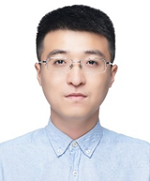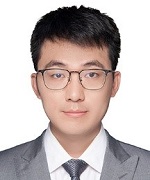Special Sessions
*Special Session Title: Challenges and Countermeasures of Large-scale Integration of Power Electronic Devices on Power System Stability
With the large-scale integration of renewable energy and the rapid development of power electronics technology, the power system is undergoing an unprecedented and profound transformation. In this process, every stage—from power sources (such as wind power, photovoltaics, and other renewables) to the grid and load side—is gradually being replaced by power electronic devices that offer rapid dynamic responses and flexible control. The traditional power system architecture centered on synchronous generators is evolving into a new model dominated by power electronic devices, with their penetration continuously increasing to form a system with an extremely high proportion of such devices.
Although power electronic devices can respond to system status changes in an extremely short time, achieving precise control and enhancing regulation efficiency, their high penetration also introduces stability challenges. The lack of the rotational inertia inherent in synchronous generators results in more severe frequency fluctuations under disturbances, while control strategies that emphasize rapid response over natural damping cause oscillations to decay more slowly under small disturbances. Moreover, the dynamic processes in power systems span multiple time scales—from microsecond-level switching and millisecond-level control loops to second-level electromechanical responses—making it difficult for traditional modeling and simulation methods to accurately capture the interactions among various components.
This topic will integrate the latest research findings from both academia and industry to explore the stability challenges faced by high-penetration power electronic systems and their countermeasures. The goal is to provide a solid theoretical foundation and technical support for the safe, stable, and efficient operation of new power systems, while also fostering innovations in theory, control strategies, and system design to meet these emerging challenges.
Topics(including but not limited to):
- Stability Analysis of High-Penetration Power Electronic Systems
- Impact of Low Inertia on Frequency Stability and Countermeasures
- Oscillation Analysis and Control Strategies in Power Electronic-Based Power Systems
- Dynamic Modeling and Simulation Methods for Multi-Time Scale Coupling
- Novel Theoretical Frameworks and Control Strategies for New-Type Power Systems

Dr. Ma Ningning, Tsinghua University, China
Dr. Ningning Ma is an Assistant Researcher at Tsinghua University, where his work focuses on power system stability, wide-area monitoring, and wideband oscillation analyses in power systems with high renewable penetration. He received his Ph.D. from Southwest Jiaotong University and has since led multiple national research initiatives, significantly advancing theories and methodologies in frequency stability, dynamic performance, and control of modern power grids. Dr. Ma’s achievements have been widely recognized. In 2021, he received the Second Prize of the Technological Invention Award from the China Electrotechnical Society. The following year, he was honored with both the First Prize of the Electric Power Science and Technology Award by the China Electricity Council and the Third Prize of the Electric Power Science and Technology Progress Award by the Chinese Society of Electrical Engineering. In 2023, he earned the Best Paper Award at the 12th International Conference on Renewable Power Generation. Most recently, in 2024, he secured the Second Prize of the Electric Power Science and Technology Progress Award from the Chinese Society of Electrical Engineering. In addition to these distinctions, Dr. Ma has been recognized with multiple Excellent Reviewer Awards, including those from Proceedings of the CSEE and Power System Technology, highlighting his strong commitment to scholarly excellence. His current research aims to advance monitoring, diagnosis, and control strategies to ensure the efficient and stable operation of power grids in the era of clean energy transition.

Dr. Liu Pengyin, Shandong University, China
Submit Method:
1, Submit it via the link: http://confsys.iconf.org/submission/repe2025 (after entering the link, click on the corresponding topic)
2, Send your manuscript to repe_conf@126.com with subject "Submit+Special Session-2+Paper Title". (请通过邮件发送稿件,邮件题目:Submit+Special Session-2+Paper Title)
3, Submission deadline: August 30, 2025
Copyright © REPE 2018-2025. All rights reserved.